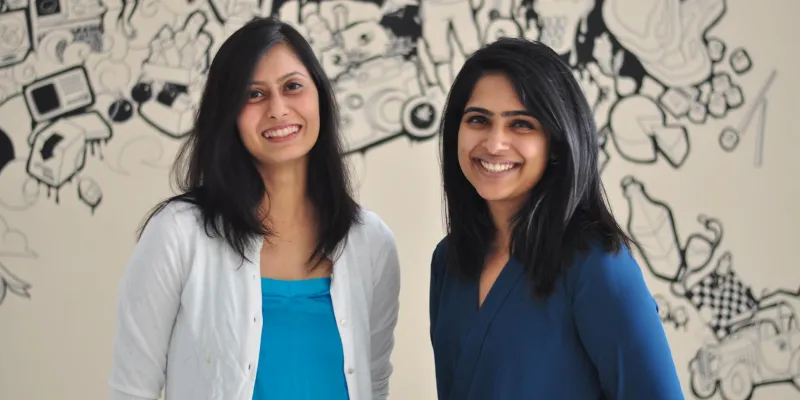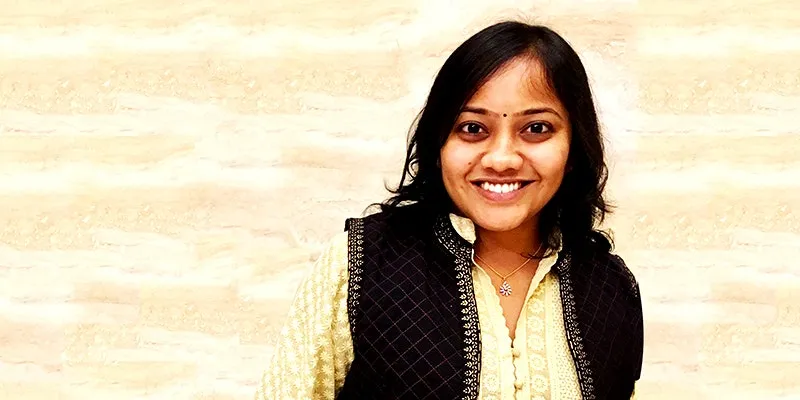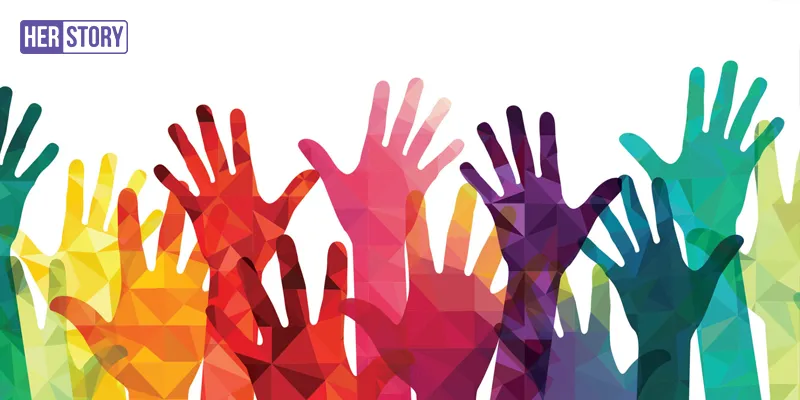Diversity is the differentiator - nine organisations that drive home a key point
Women that are helping drive the diversity and inclusion for organisations.
In the past few years, Diversity and Inclusion (D&I) have become key factors of business development in companies. Research indicates that organisations with better D&I policies are more likely to have a better understanding of customers, better performance, greater innovation and creativity, higher talent retention and overall better employer branding.
Nasscom statistics indicate that the total women workforce in India is 34 percent with only 24 percent women in managerial positions. Additionally, women make up only 10 percent of startup founders in the country. A McKinsey report highlights that “a 10 percent increase in women workforce could add $770 billion to the country’s GDP in the next seven years”, clearly outlining a gap between reality and the desired outcome that needs to be bridged. Here are nine organisations (and the women behind them) who are doing exactly that.
Serein
Founded by Ishani Roy, Serein helps organisations overcome their conscious and unconscious barriers of inclusive culture through their e-learning platforms, inclusion labs, women acceleration and gender sensitisation programmes. The Bengaluru-based organisation has a diverse team comprising of scientists, sociologists, lawyers. It combine science and sociology, and employs a data-driven approach.

Ishani and Chryslynn D’Costa
While Ishani Roy was working with different businesses, she realised that the difference between the companies that struggle and the ones that succeed is diversity. And when she met Chryslynn D’Costa - the head of research and design at Serein, the two came up with a significant question - how can we use current research in organisational behaviour and gender studies to address unconscious bias and help companies get rid of it?
Ishani reached out to 300 startups and small businesses in Bengaluru asking them to form a PoSH committee. Along with Psymantics, Serein has also conducted a study on relationships between team climate factors, inclusion, and employee engagement, which reiterates the fact that inclusion matters.
Read: Serein helps workplaces address sexual harassment and gender issues
KelpHR
What began as an idea for HR marketplace turned into an organisation that works with companies to infuse diversity and inclusion into their DNA. KelpHR aims to do this by getting to the roots of unconscious bias as deeply as possible by exploring everyday bias that gets played out even through language.

Viji Hari
CEO and Founder Viji Hari points out incidents related to sexual harassment. He says, “Surveys show that in 65 percent of the cases, the incidents do not recur after a confrontation. If it is physical and serious in nature, then fight or flight should be your first step.” She specialises in setting up governance models, prevention and redressal committees for sexual harassment in the corporate world. After figuring out that there were no books written on this subject, she authored Behind Closed Cubicles in order to educate women on how to deal with sexual harassment at the workplace.
She has a team of 11 Kelpers, most of them being women who work out of offices in various cities. It is perhaps her love for travelling and 14 years of travelling across the world that has widened her perspectives about different cultures and mindsets.
Read: Here’s why gender diversity needs to be a part of every organisation’s DNA
Interweave
Much as the name suggests, this organisation believes that the diversity formula ought to be worked out together and not in isolation. Interweave was founded by Nirmala Menon in 2006 when the subject of D&I was not even in business conversations.
She is listed as a SME (Subject Matter Expert) by SHRM India, is an active member of Nasscom’s D&I Steering Committee and has a firm foundation in this space since her work with IBM as a Diversity and Employee Relations Lead until 2005.
Through its services in Diversity Management and Innovations in Inclusion, Interweave helps companies understand that multiple perspectives and ideas are critical to organisational success. This Bengaluru-based organisation has effectively worked with 80 percent of Fortune 500 companies so far. Nirmala Menon believes the Interweavers are the ‘architects of change.’

Ungender
This Delhi-based advisory firm focusses on issues of sexual harassment and maternity discrimination, help interpret complex laws, educate stakeholders, and provide insights on workplace interventions. The organisation employs the Diagnosis-Design-Execution approach to provide specific solutions to specific problems in an organisation.
Pallavi Pareek, a change management professional turned entrepreneur, is the founder. She finds her role pivotal after the government and lawmakers are done playing their role of introducing the laws. And the thought behind her actions is this simple mantra - “What is good for one gender is good for any other”. She has also been a key change maker in the field of building safe workplaces with her product “CloudTrain”.
Enable India
There is no role left un-enabled by Enable India, a Bengaluru-based company that works across 350+ locations with 11,000+ leaders in 615+ companies. The team itself is diverse in terms of age, gender, abilities, education level, professional experience, and demographic background.
Founder and Chief Enabler Shanthi Raghavan has 16 years of grassroots level experience in areas of disability. Her underlying mantra is - “I see me in you.” Through Enable India, she creates a new market in which the needs of the corporate sector are met by a growing group of disabled professionals, who will dispel the myths and stereotypes that discriminate against these citizens.
Shanti uses her high-level contacts to conduct corporation-wide assessments in order to identify strategic areas to introduce disabled employees. She then shares her diagnostic approach and results with other organisations who train the disabled and encourages them to approach companies in a similar manner.
Giftabled
Founded by Prarthana Kaul in 2014, this Bengaluru-based social enterprise aims to empower people with disabilities across several aspects of life and support them in living with dignity. Apart from offering a host of training and workshops on disability sensitisation for companies, this organisation also helps other organisations become web accessible, i.e. to remove barriers that prevent interaction with, or access to websites, by people with disabilities.
Prarthana Kaul conducts workshops across India in the areas of disability sensitisation, sign language, braille, volunteer management and employee volunteering and engagement. With her team, she equips organisations with skills needed to hire and engage with PwDs.
Beyondiversity Think Tank
Sarika Bhattacharya, the CEO of BD Think Tank, has been able to impact 10,000+ women leaders through her consultant organisation. One of the earliest scenarios that influenced her was seeing her friends drop their careers because of non-inclusive environments at their workplaces.
Based out in Delhi, Mumbai and Pune, BD Think Tank’s mission is to create an inclusive environment where differences are recognised, understood, appreciated and utilised to its full potential. One of its significant goal is to establish gender equal high-level leadership, including promoting women in boardrooms, institutions and public leadership.
Sarika, who was a banker before becoming an entrepreneur, believes in inclusive leadership and equal opportunity for all. She was nominated by the US Embassy for the prestigious Fortune Most Powerful Women Mentoring Program and won the “Leadership in Mentoring” award in 2014.
SHLC
Delhi-based Sexual Harassment Law Compliance provides documentation, consultation, and advisory services to help organisations comply with the Sexual Harassment Law and to help create a safe and healthy work environment for both employees and employers.
Co-founder Aparajita Amar is a certified Sexual Harassment and Workplace Diversity Advisor. The organisation works on drafting anti-sexual harassment policies, sensitisation and awareness session and ICC capacity building. Aparajita has researched extensively on women empowerment laws. She has deposed before the Parliamentary Standing Committee on the Surrogacy Regulation Bill, 2016. At SHLC, Aparajita has a diverse team of lawyers, chartered accountants, counsellors and trainers, both men and women.
Flexi Careers India
Through thorough research on women’s career, work-life balance, and gender diversity, Chennai-based Flexi Careers India has been able to place more than 8,000 women with organisations across India. This includes companies in IT, BPO, FMCG, Banking & Financial Services, Retail and other industries. The portal caters to women by creating and fulfilling work-life integrated careers. And more than 40,000 women professionals have registered on it. Using a combination of methodologies, all programmes conducted by FLEXI are eminently effective in their reach and absorption.
It was the year 2006 when the founder of Flexi Careers - Dr. Saundarya Rajesh - encountered a problem in corporates. She realised that companies summarily rejected CVs of women on career breaks. Deciding to approach the problem a bit differently, she turned the challenge on its head and convinced corporates that women who had taken breaks were more likely to stay on the career track longer and were also a source of highly skilled personnel. Her suggestion was taken and a ‘Second Career’ programme was launched. Over 400 women re-entered the workplace for the first time. Since then there has been no looking back.
The good news is, the gender diversity gap can be bridged. The great news is that the crusaders of these organisations won’t stop until then, however long it takes.
Also read:
HerStory presents Women In Workforce Study - a survey on the state of women in India Inc
#MeToo - Why speaking out is not about timing, but finding a voice
Safer workplaces- a reality or a dream? #SheChat with Ishani Roy, Founder, Serein







